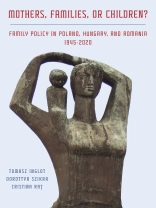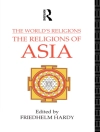Mothers, Families, or Children? is the first comparative-historical study of family policies in Poland, Hungary, and Romania from 1945 until the eve of the global pandemic in 2020. The book highlights the emergence, consolidation, and perseverance of three types of family policies based on “mother-orientation” in Poland, “family orientation” in Hungary, and “child-orientation” in Romania. It uses a new theoretical framework to identify core and contingent clusters of benefits and services in each country and trace their development across time and under different political regimes, before and after 1989. It also examines and compares policy continuity and change with special attention to institutions, ideas, and actors involved in decision making and reform. As family policies continue to evolve in the era of European Union membership and new governmental and societal actors emerge, this study reveals mechanisms that help preserve core family policy clusters while allowing reform in contingent ones in each country.
Circa l’autore
Tomasz Inglot (Author) Tomasz Inglot is professor of political science, distinguished faculty scholar, and director of the International Relations Program in the Department of Government at Minnesota State University–Mankato. He is the author of the award-winning book Welfare States in East-Central Europe, 1919–2004.Dorottya Szikra (Author) Dorottya Szikra is senior researcher at the Centre for Social Sciences, Budapest, and visiting professor at the Department of Gender Studies and the Department of Political Science, Central European University in Vienna. Cristina Rat (Author) Cristina Raț is lecturer in the Sociology Department of Babeș-Bolyai University, Cluj, Romania, where she teaches courses on class inequality and social policies.












